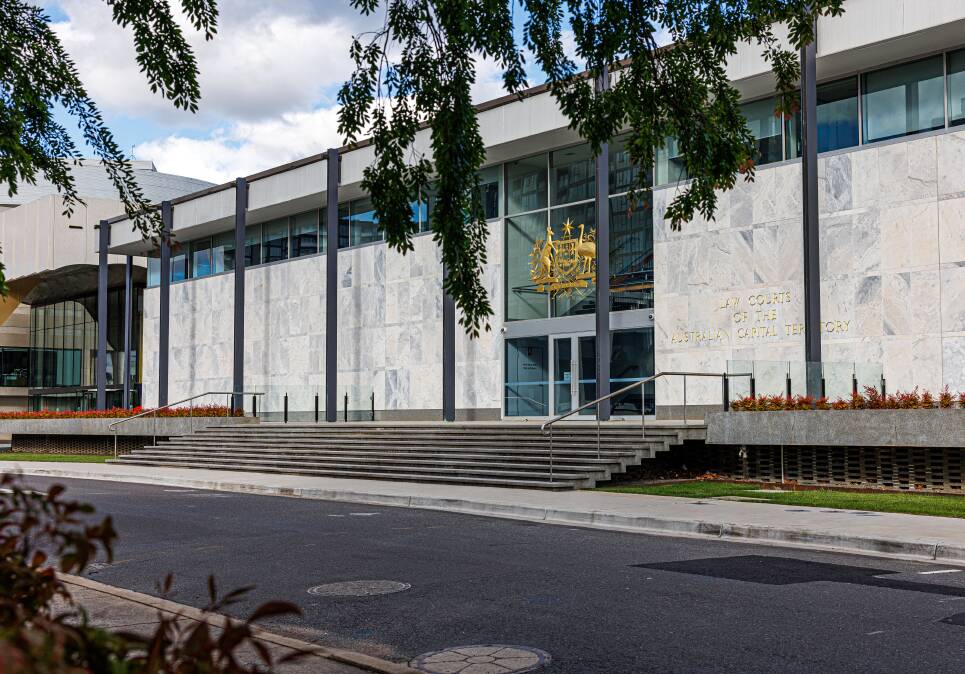A senior police officer has said she would consider advising her superiors that a standard practice in interviewing sexual assault complainants may be "fraught with significant problems" after admitting one of her interviews could have "hamstrung" parts of a trial.
Australian Federal Police leading senior constable Lucy Evans made a number of damaging admissions during cross examination in an ACT Supreme Court trial on Thursday.
The judge alone trial, beginning on Monday, has heard that a man allegedly committed historical indecent acts on his adopted sister in 1971-75.
The man, in his mid 70s, is also accused of committing similar acts on his niece in 1979-83.
He pleaded not guilty to two counts of assaulting a child and about the same time committed an indecent act on the child.
The prosecution case is that the accused touched the complainants' vaginas and genital areas a number of times when they stayed at his Canberra premises during school holidays.
The case also includes tendency evidence involving uncharged acts by the accused - that he allegedly touched the first complainant in three incidents while they were in NSW before the charge period that is the subject of the trial.
Senior constable Evans, who was the lead investigator of the case and now a welfare officer, gave evidence during the latest court session.
Defence barrister Travis Jackson cross examined her about the impact of allowing the first complainant to "have a significant volume of documents" to refer to during her recorded evidence-in-chief interview with the officer.
Mr Jackson said the documents - which included statements to NSW Police, photos, and Facebook Messenger conversations - affected the complainant giving a "free narrative" about her allegations.
The purpose of a free narrative was to avoid the potential for "concoction or contamination", he said.
Mr Jackson said that such interviews conducted by police should be done as if they were done in court, which is without documents or other help, unless applied for and granted.
He cited the Evidence (Miscellaneous Provisions) Act in which the prosecution conceded that other than mechanisms to safeguard sexual assault complainants participating in such interviews, nowhere in that legislation does it refer to using documents that would not ordinarily be allowable in giving evidence.
Mr Jackson said that based on the above, the traditional rules of evidence still applied.
The senior constable agreed to that and admitted she allowed the complainant to have the documents and that such a practice "may be fraught with significant problems".
She said she thought it was reasonable for a complainant to bring notes to help them remember incidents decades ago.
The court heard it was "common practice" by officers in such interviews with sexual assault complainants to allow them to refer to documents.
Senior constable Evans said she adopted it from more experienced colleagues and could not recall if she was told during her formal training in 2009 about allowing documents.
When asked if the complainant's interview was contrary to her own experience as an officer giving evidence in chief in court, the officer said "when you express it like that, yes".
"But in the context of my role as a sexual assault investigator, I did not consider at the time that that would be an issue as it is a standard practice," she said.
The officer said she made copies of the various documents, except for the complainant's timeline of events, which were then sent to the Director of Public Prosecutions.
She said she could not remember why she did not copy the timeline but accepted that omitting it could have impacted the trial as the document could no longer be interrogated.
She agreed it was a possibility that her failing in her duties "have hamstrung the accused" in his defence.
Asked if she would return to her superiors and say "we need to reflect on our procedures" in relation to allowing documents, senior constable Evans said "yes, I would consider I would do that".
Earlier in the hearing on Thursday, an extended family member of the complainant gave evidence via audio-visual link from Queensland.
The witness said the complainant disclosed to him once that her brother allegedly had his "fingers inappropriately inserted into her".
The legal parties will provide written closing submissions to Justice Chrissa Loukas-Karlsson.
- Support is available for those who may be distressed. Phone Lifeline 13 11 14; Kids Helpline 1800 551 800; beyondblue 1300 224 636; 1800-RESPECT 1800 737 732.








